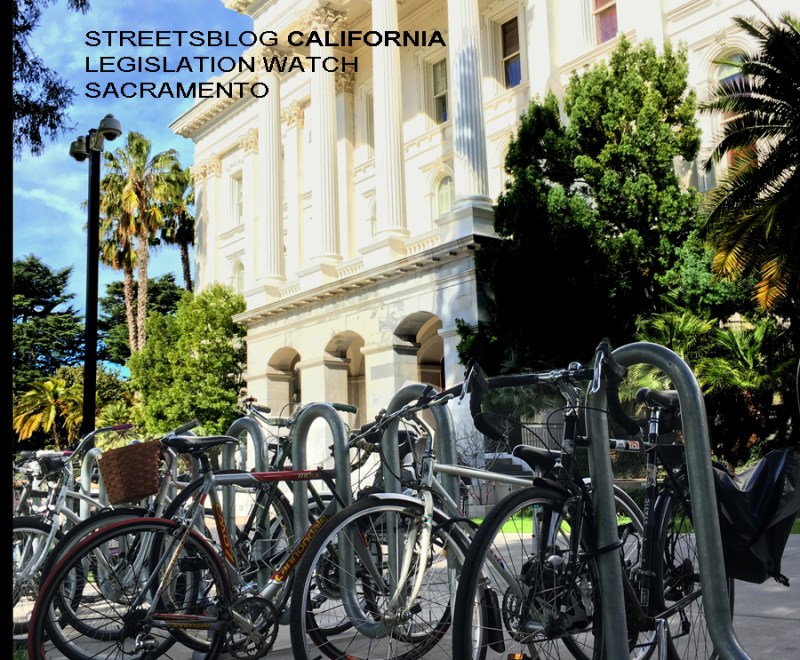Last week Streetsblog California reported that the state budget will allocate $10 million to help people buy e-bikes, and mistakenly wrote that an accompanying policy bill had stalled in committee.
It had not.
A.B. 117 is still very much alive, and has passed the Assembly and the Senate Transportation Committee. It will be heard on Monday by the Senate Environmental Quality Committee.
The bill originally had provisions in it to help guarantee that the money would go to the people who need it most, so as to avoid simply creating a handout for people who can well afford to buy e-bikes.
E-bikes are extremely popular, and growing more so. They aren’t cheap, but they are a great substitute for many types of trips people now take in cars. They are cheaper and have a much lower carbon footprint than any other electric vehicle, and California should be encouraging their adoption by as many people as possible.
But that doesn’t mean the state has to pay for everyone to have one.
The author of A.B. 117, Assemblymember Tasha Boerner Horvath (D-Encinitas), intends to use the bill to create guidelines for the incentives program, which will fall under the Clean Vehicle Rebate programs run by the Air Resources Board. In addition to finding a way to prioritize people with lower incomes, the program would be structured to give our vouchers, rather than a rebate. That would make it easier for people without the ability to raise funds ahead of time to take advantage of the program.
She also wants to ensure that the program can be used for a variety of bike types, for different abilities and uses. And some of the funding would be available for bike education and safety programs.
These provisions were removed when the bill was in the Assembly Appropriations Committee, but at the recent Senate Transportation Committee hearing Boerner Horvath said she plans to include them in the final bill at some point before it is, with luck, passed and signed by the Governor.
The bill has no official opposition, and is supported by a wide variety of advocacy organizations as well as cities and counties, including Los Angeles, San Mateo, Alameda, and SANDAG.
Meanwhile the budget bill that appropriates the $10 million to the program is still waiting to be signed by the Governor.






